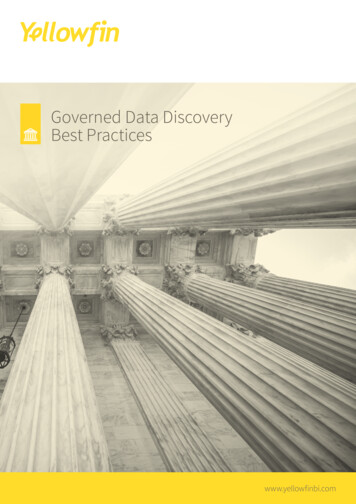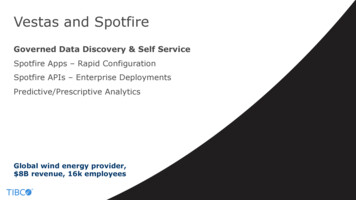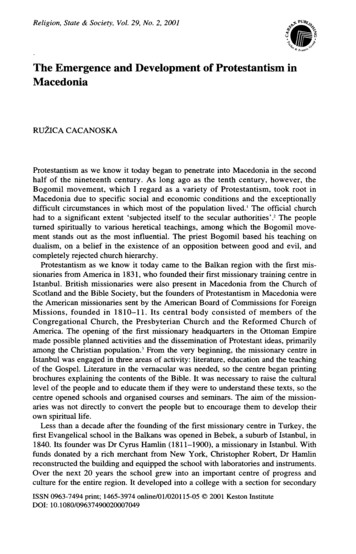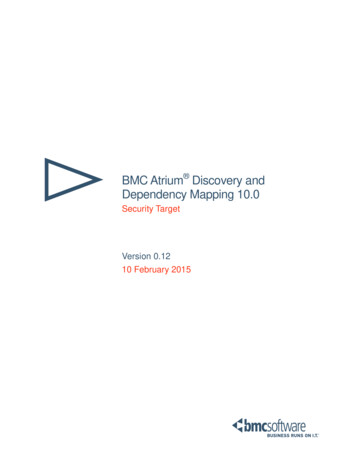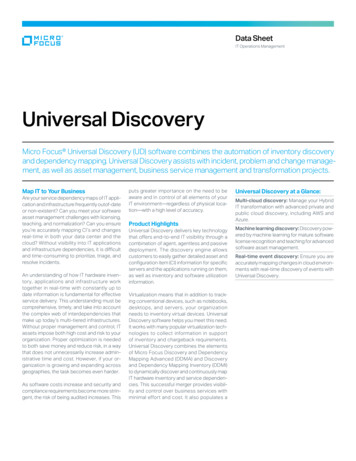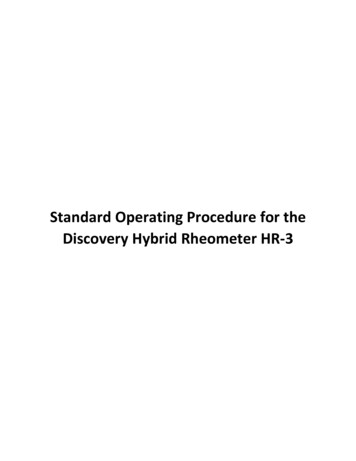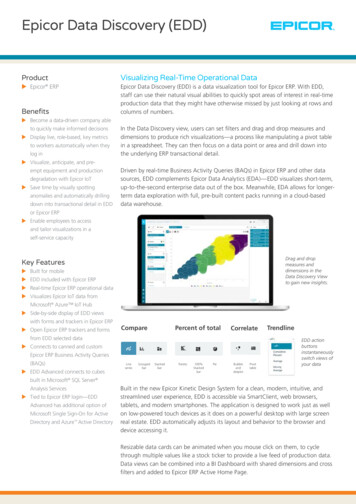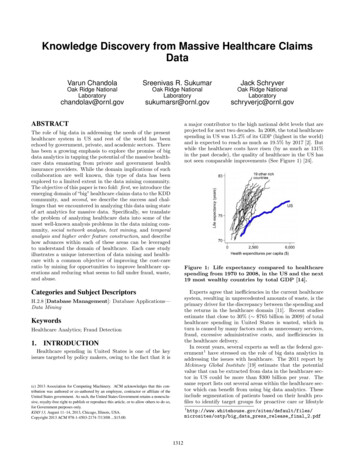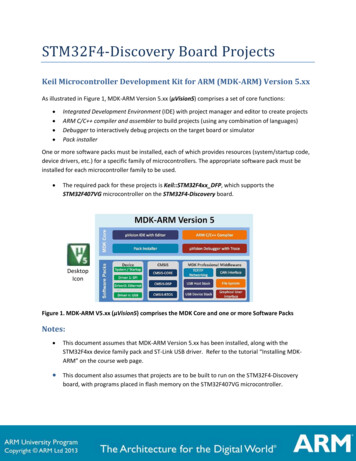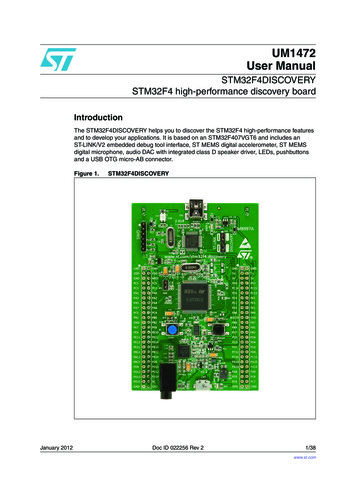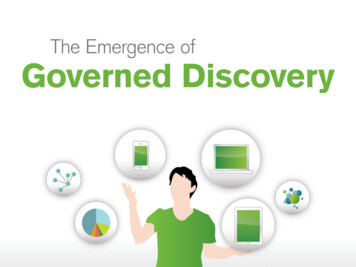
Transcription
The Emergence ofGoverned Discovery
Historically, governance meant security.And lots of it.IT built walls to protect data. But there wereunintended consequences.Sometimes this approach locked out businessusers. And in the process, it stifled innovation.
This old way of thinking doesn’twork anymore. Despite years of hugeinvestment, BI adoption rates are abysmal.The time has come to think differentlyabout governing business intelligence (BI).We’ve entered the era ofgoverned discovery.
To support governed discovery, the role of IT isshifting rapidly from enforcement to enablement.It’s a change in focus to whatthe business can do, not whatthey can’t do.But it’s about more thangoverning data. It’s aboutmanaging behavior.
Focusing on enablement givesbusiness users the ability(and permission) to innovate freely.And more importantly, governancenot only enables innovation butallows your organization tocapture and share that innovation.Of course, it’s also importantto do this within a frameworkthat supports the hallmarks of awell-run technology platform –performance, scalability and,yes, even security.
So, what is governance?Governance encompasses the people, processes, andtechnology required to enable the business to exploredata freely within invisible boundaries that ensure theintegrity of the information being explored, support awide range of usage needs, as well as protectthe interests of the organization.In short: it balances the needs of ITwith the needs of the business.
Governed Discovery, definedgov·ern·ed dis·cov·ery (gə́-vərn-d dìs-kə́-və-rē)noun1. G overned Discovery empowers users to develop,analyze, and collaborate anywhere, on any device.And, it also provides IT with the tools they need tomanage the environment.
So how do youtransform your organizationfrom maintaining data governance toenabling governed discovery?
Here are 3 waysto get started.
1STFuture proof your implementation of user-drivenBI by choosing a vendor that can support a broadrange of needs and supports open APIsfor the unexpected.
IT isn’t in the business ofreplacing the underlyingplatforms every six months.But in IT, there is a growingrecognition that one of themost important things that wecan do is to plan for change.
2NDWork with a vendor with the depth of experienceat an enterprise level needed to ensure that youhave the tools and support you will needto be successful.
Don’t let all of this talk about the changing role of ITfool you. You can’t quit your day job. The hallmarks of awell-run IT organization are still critical.You still need to worry about things like security, performance,and compliance. So make sure that the Business Discoveryplatform you choose gives as much consideration to thepeople managing the system as it does to those using it.Remember, governance is about balance.TM
3RDDon’t focus only on the technology. It is just asimportant to focus on the people and processesthat put business user enablement andempowerment first.
It’s no surprise that businessusers are becoming moretechnically savvy. Hire andpromote IT personnel who ‘get’the business too. They need tospeak “business” rather than“geek speak.”Make sure to differentiate yourprocesses. Not everythingneeds to be treated likethe crown jewels.
Want to learn more?
Read Evaluating Governed Data Discovery.This guide provides you with a list ofcapabilities that are critical to empoweryour business users both today and inthe future as your organization’s analyticcapabilities mature.
qlik.com 2015 QlikTech International AB. All rights reserved. Qlik , QlikView , Qlik Sense, QlikTech , and the QlikTech logos are trademarks of QlikTech International AB which have beenregistered in multiple countries. Other marks and logos mentioned herein are trademarks or registered trademarks of their respective owners.
To support governed discovery, the role of IT is shifting rapidly from enforcement to enablement. It’s a change in focus to what the business can do, not what they can’t do. But it’s abou
